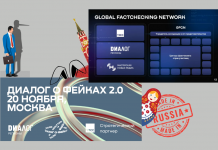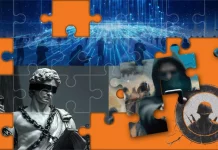
Invitation to the Expert Roundtable
The European Values Think-Tank in cooperation with the European People’s Party Group in the European Parliament are pleased to invite you to conference: “Putin’s Russia: How urgent threat it poses?”
This conference will be held under patronage of Jaromír Štětina MEP, member of EPP Group, Vice-Chair of Security and Defense Subcommittee of the European Parliament.
A new comparative study “Behavior of Putin`s Russia through lens of allied strategic and policy documents” by European Values Think-Tank will be presented. It will analyze security strategies, foreign policy strategies and annual reports of allied intelligence agencies of EU28 states through lens of how these documents perceive behavior of the Russian Federation.
Date & venue:
24 April 2017 – European Parliament, Brussels
14:30 – 16:00
You can find more information and the registration form on our website.
Putin’s Champion Award
Our Expert Jury consisting of Jessikka Aro, Anton Shekhovtsov, John Schindler and Michael Weiss regularly vote on the dangerousness of several candidates you can nominate via e-mail or Twitter.
We already have the 4th Putin’s Champion Award Recipient:
Julian Assange
For serving as a loyal tool of the Kremlin and attacking selected politicians Moscow wants to be sunk

The Expert Jury ranked his Putin-supportive job with
4,7
(out of 5) mark.
The rating signals how much the recipient contributed to the interest of the Putin’s aggressive regime. It is calculated as an average of ratings assessed by the Expert Jury of this Award.
You can find more details about the award and the former recipients here.
Weekly Update on the Kremlin Disinformation Efforts in Europe
According to General Sir Adrian Bradshaw, the Deputy Supreme Allied Commander Europe, the alleged Russian cyber attacks influencing US presidential elections could be considered an act of aggression and trigger the Article 5 of the NATO Treaty, activating the principle of collective defence.
A Joint Declaration on freedom of expression has been issued by the United Nations Special Rapporteur on freedom of opinion and expression David Kaye, together with his counterparts from the Organization for Security and Co-operation in Europe, the Organization of American States, and the African Commission on Human and People’s Rights. In the document, the authors focus on fake news, disinformation, and propaganda.
The First Draft News is launching a new project, getting together researchers in order to map the misinformation ecosystem in Europe. The focus should be especially on the Netherlands, France, and Germany. The resulting product should be a field guide describing the digital methods, data, tools, techniques, and research approaches which can be used for increasing public understanding of the fake news.
Focus on Germany
German troops in Lithuania under disinformation fire
A fake report has been planted to the email inbox of the speaker of the Lithuanian Parliament, stating that German soldiers placed in the country within the NATO battle group had raped a teenage girl. The disinformation has been caught quickly and did not cause as much turmoil as one might expect. According to the Czech NATO General Petr Pavel, Moscow is to blame for the incident, but the Lithuanian authorities are still in the process of investigation.
In the meantime, The German Foreign Ministry spokesman Martin Schaefer announced that Germany is going to assist the Baltic countries with establishing Russian-language media outlets in order to counter disinformation and attract Russian-speaking minorities.
“Alternative German foreign policy”
While German officials fight pro-Kremlin disinformation in the Baltic states, some German political far-right representatives have been active as well. The leader of the Alternative for Germany (AfD), Frauke Petry, met with two Russian MPs from the United Russia party, as well as with Vladimir Zhirinovsky, an ultra-nationalist from the Russia’s lower house of parliament, discussing inter-party cooperation and other things. Other representatives from the AfD, together with members of the Austrian Freedom Party, participated as “electoral monitors” in the “constitutional referendum” organized by the self-proclaimed authorities of the unrecognised state of Nagorno-Karabakh. As Anton Shekovtsov points out, Russian federation is not an official side to this conflict, but sells weaponry to both engaged countries, ensuring its sphere of influence.
Euroatlantic experts on disinformation warfare
If you were looking for a thorough overview of the relations between Russia and the United States from the end of the cold war up till now, summarizing what we do and do not know about the Kremlin’s meddling during the US presidential elections, the long-read by Evan Osnos, David Remnick, and Joshua Yaffa in the New Yorker is exactly for you.
The Visegrad group has been known to cooperate on many issues during the modern history, but the issue of Russia continues to be one of the biggest divisions of opinion among these Central European countries. Edit Zgut, Jakub Šimkovic, Krzysztof Kokoszczynski, and Lukáš Hendrych argue on the pages of Euractiv that it is very unlikely that this situation will change, overviewing each state’s stances towards the Kremlin and its policies.
If you are curious about the details of how troll factory works and what it can do to even the most genuine and non-harmful attempts for serious journalism, we recommend this article by Mathias Ståhle, published by ekuriren.
Kremlin Watch Reading Suggestion
International Security and Estonia;
prepared and published by the Estonian Information Board
In Estonia, Russia is seen as the most significant threat to Estonian security – mainly due to the following factors. Russian foreign policy goal is the restitution of its global importance which diminished with the fall of the USSR. It portrays the EU and NATO as organizations hostile to Russia and thus making Russian aggressive actions appear as mere reactions. Maintaining its sphere of influence is also an important objective for Russia. As for the EU, Russia tries to create tensions both between the member states and within them. In order to do so, it uses measures such as influence operations, propaganda, disinformation, or support for extremist and populist parties with an anti-EU stance. In the cybersphere, Russia poses a significant threat not only because of the “information confrontation” but also because of the direct cyber attacks, which aim to da mage the target or to obtain some information.
On the domestic level, Russia is experiencing economic hardship (caused mainly by the low price of oil and the Western sanctions) which results in other problems as well. In order to secure its position, Putin is centralizing the power in Russia even more and has made a lot of high-level personnel changes lately. Despite the country’s economic problems, the military is still the second largest expense in the Russian budget and Russia maintains a powerful military potential.
Central Europe Disinformation Corner
(You can read the full report on the website of the GLOBSEC Policy Institute)
The inauguration of Donald Trump as the 45th President of the United States was extensively elaborated by the disinformation outlets in Central Europe. Some media outlets known for spreading distorted and biased information even took Trump’s rhetoric and narratives when reporting on events and international cooperation:
- CIA plans to assassinate Donald Trump
- NATO as a terrorist organization
- The European Union compared to the Third Reich
- The traitors and foreign agents
Disinformation outlets have long been waging discretization campaigns against investigative journalists, activists, and civic organizations. Hungarian disinformation posts on Facebook jovially comment that seven things that make an “independent NGO cry” are “logic, patriotism, a good stew, the people’s will when a non-liberal force is in government, respect for Christianity, love of the family, and national holidays.”
Some outlets commented on the “fake news” filter which Facebook tested in France and Germany with the help of independent journalists. The Russian secret service-operated Hungarian outlet hidfo.ru quoted a German lawyer who claimed that the independence of the journalists involved was questionable. Similar narratives were used in connection with the Czech public broadcaster and the Centre Against Terrorism and Hybrid Threats newly established within the Czech Ministry of Interior.
Pro-Kremlin disinformation outlets also declared the worldwide Women’s March protests to be organized by George Soros. What was their argumentation? There was no Women’s March in Russia, where Soros’ organizations are banned. Other websites targeted the EDISON program of AIESEC, an international student NGO, promoting cultural diversity and tolera nce in schools.
Liberal media and NGOs are pursuing activities that are expected of them in liberal democracies, acting as the watchdogs of society. However, there are significant differences between the freedom of the press and the deliberate dissemination of disinformation and sensationalized stories for political ends – something pro-Kremlin outlets continue to do.
Kremlin Watch is a strategic program of the European Values Think-Tank, which aims to expose and confront instruments of Russian influence and disinformation operations focused against liberal-democratic system.





